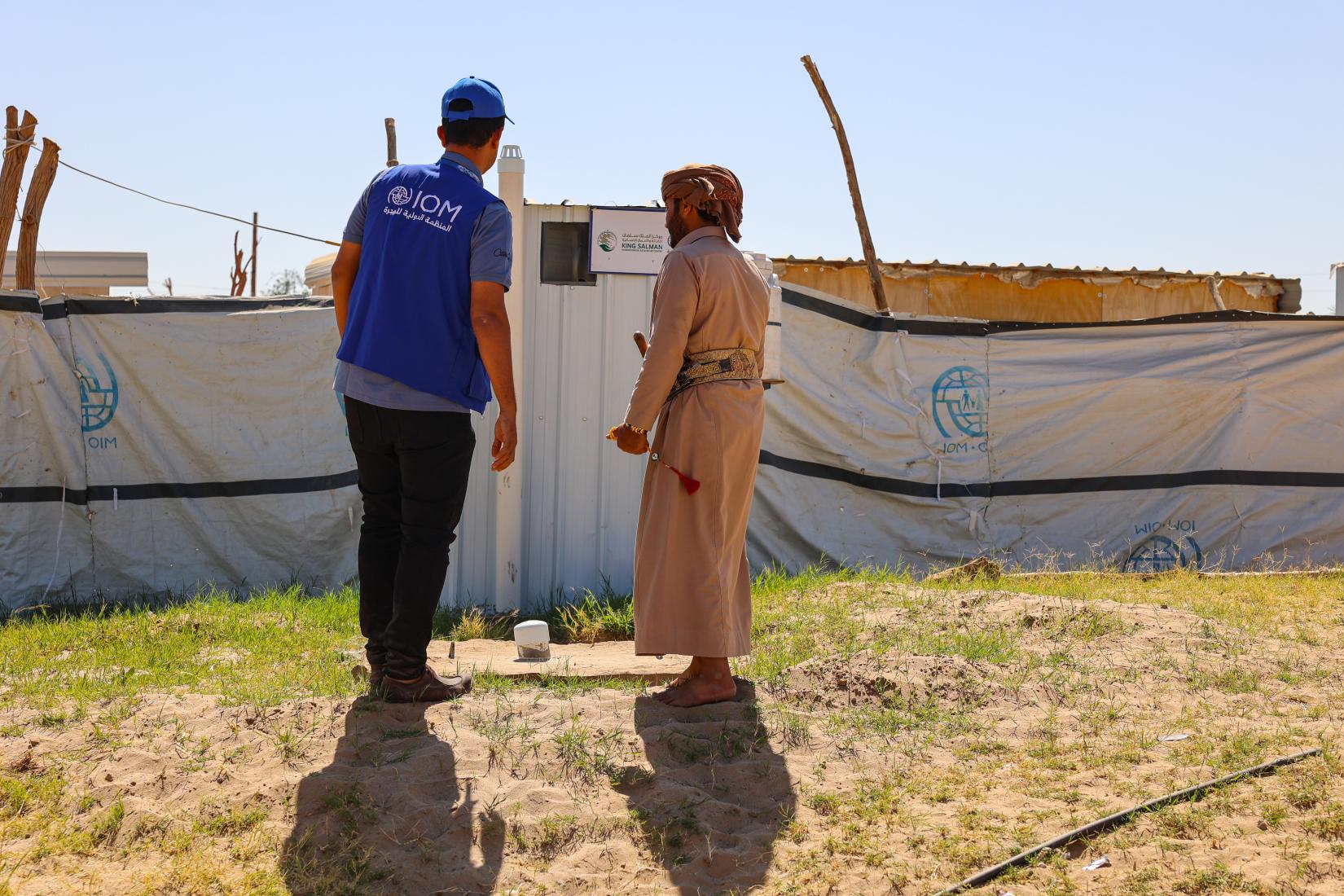IOM Yemen: A Simple Change - Where There Was Fear, There Is Now Safety
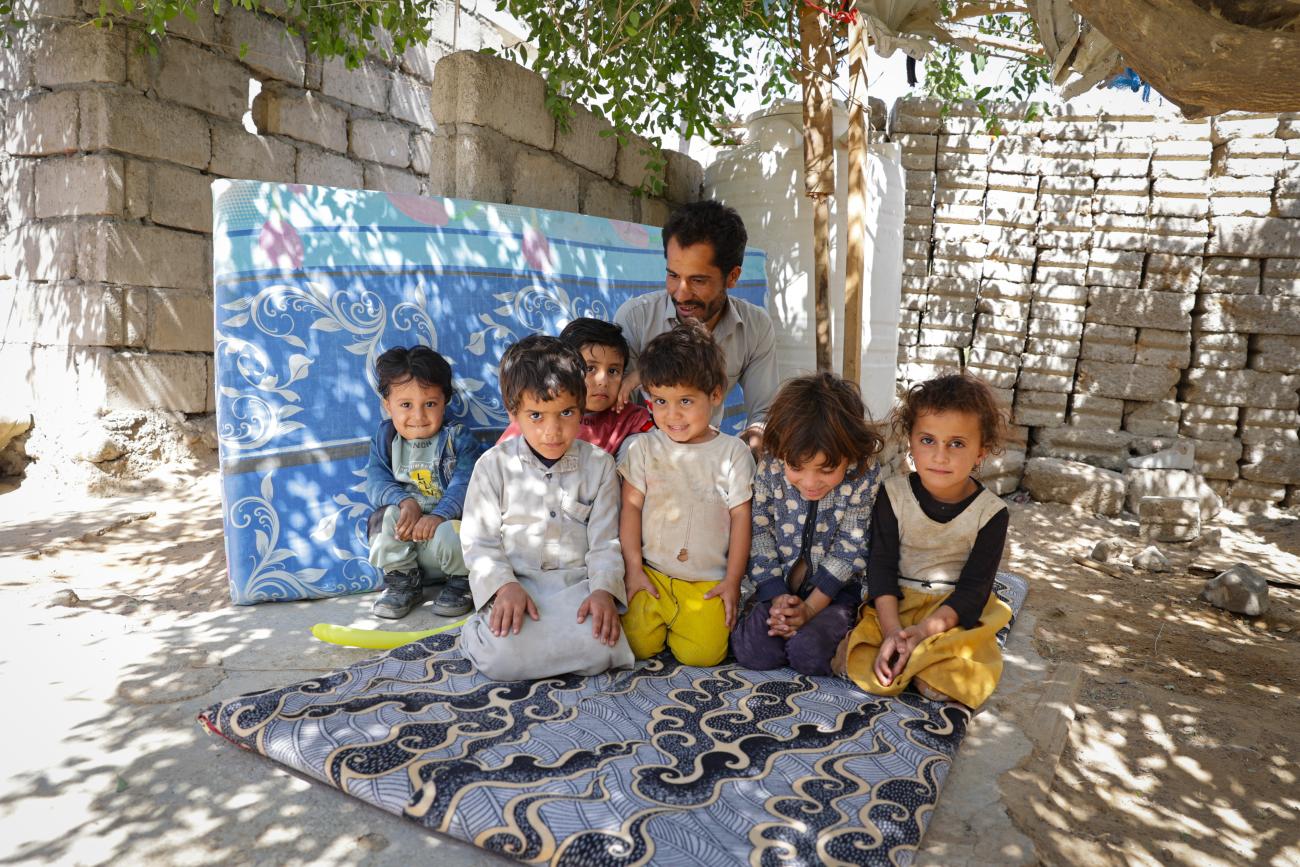
Where There Was Fear, There Is Now Safety
Ma’rib, Yemen
Seventy-year-old Amena never thought she would spend her final years far from the home she built with love. Her house had been full of life, a place where her children and grandchildren played, their laughter filling every corner. Then, one night, everything changed.
Suddenly, the deafening roar of airstrikes teared through her village. In an instant, she and her family of twelve were running for their lives, grabbing only what they could carry. What she thought would be a temporary escape stretched into years of displacement, moving from place to place until they finally arrived at Al Jufainah displacement camp in Ma’rib. She never imagined that a single night would unravel her entire world, leading to a decade of struggle.
With no money for rent, Amena’s son did what many displaced families had to do: pitch a tent for the women and children, while the men slept outside, exposed to the elements. Even the most basic needs, like access to a latrine, became a daily struggle. Once again, the family had to start over with nothing.
Across Yemen, more than 40 percent of internally displaced persons (IDPs) lack access to safe latrines and proper sanitation. For Amena’s family, that meant using a makeshift latrine built from blankets and plastic sheets – a flimsy structure that offered little privacy, especially for women and girls.
With no proper facilities, the women in the family had no choice but to bathe in the yard, making sure no one could see them. Beyond privacy concerns, water was scarce, and they had to collect it each time they used the latrine. With so many people in one household and only one latrine, they had to take turns showering, a process that often took hours.
“As women, we had to use the latrine at dawn or wait until nightfall. We washed in the yard, constantly on edge, making sure no one could see us.” – Amena, Displaced Mother
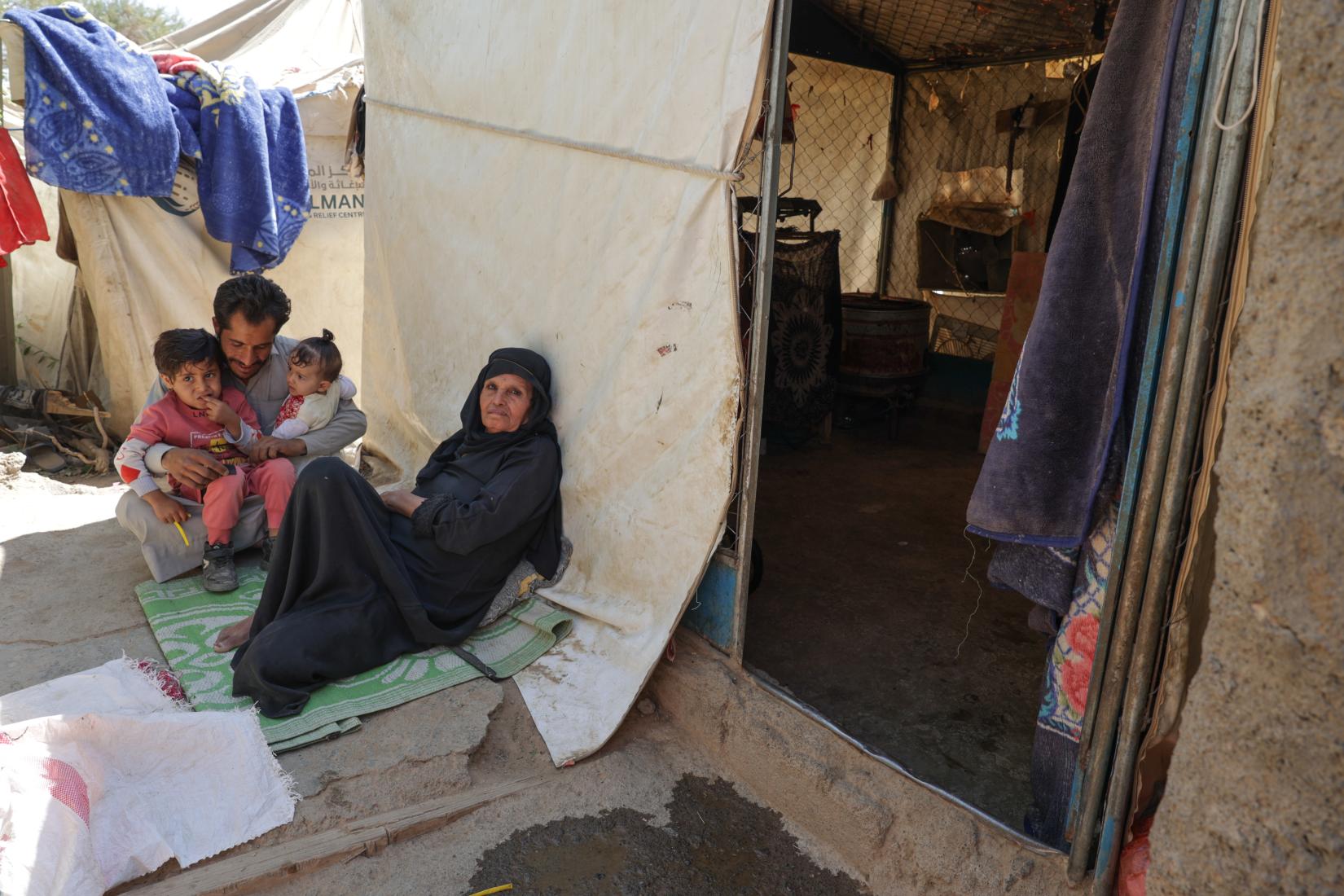
Clean Living
For elderly people like Amena, who live with chronic health conditions such as diabetes, access to a latrine is not just a convenience, it is a necessity. The lack of proper facilities puts additional strain on those already vulnerable, especially pregnant women, who face serious health risks. Amena has seen the consequences firsthand. “Most of the women in my family have developed serious kidney conditions,” she explains.
Bathing becomes a constant struggle during the rainy season as dust fills the air and clings to the skin before the water even dries. When it rains, thick mud replaces the dust, making it nearly impossible to stay clean. Clothes and bedding remain damp, adding to the discomfort. No matter the season, hygiene feels like an endless battle.
To address this urgent need, the International Organization for Migration (IOM), with support from the King Salman Humanitarian Aid and Relief Centre (KSrelief), installed latrines for 300 vulnerable displaced families in the camp. Unlike makeshift latrines with open tops, these new facilities have secure locks, providing families with privacy, dignity, and improved hygiene.
Yasser, Amena’s eldest son, has seen what poor sanitation does to a community. Without proper cesspits, the camp was filled with unbearable smells, constant respiratory infections, and swarms of mosquitoes that spread malaria. Sewage often overflowed into shelters, making life even harder.
“When the cesspits got full, we couldn’t sleep or eat until they were emptied. Each time, we had to pool money to pay for a truck to remove the waste. It was expensive, but what choice did we have?” – Yasser, Amena’s Son
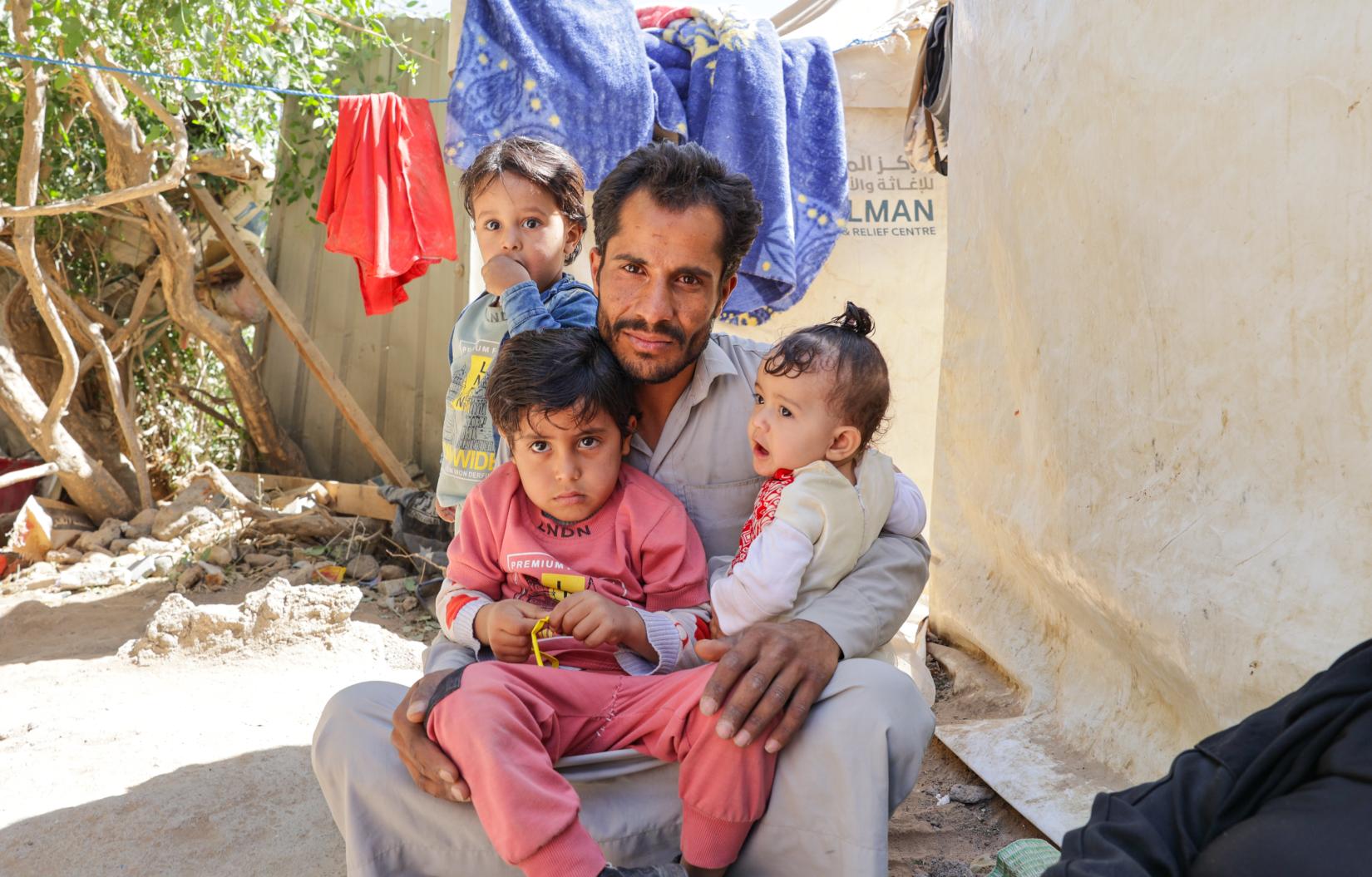
From Hazard to Safety
With more than 14,000 displaced families now living in the camp, people dug their own cesspits wherever they could. Some were right next to shelters, others were hastily covered and built over. At night, open pits became hidden dangers.
“Even men avoided walking or driving after dark because the open cesspits were everywhere,” Yasser says. “People fought over drainage and some of those fights turned violent.”
To ease the crisis, IOM built 200 new cesspits and renovated 400 more. For Amena’s family, it was more than just better sanitation. It meant fewer nights spent worrying about sewage flooding their home, fewer illnesses, and the simple relief of breathing clean air again.

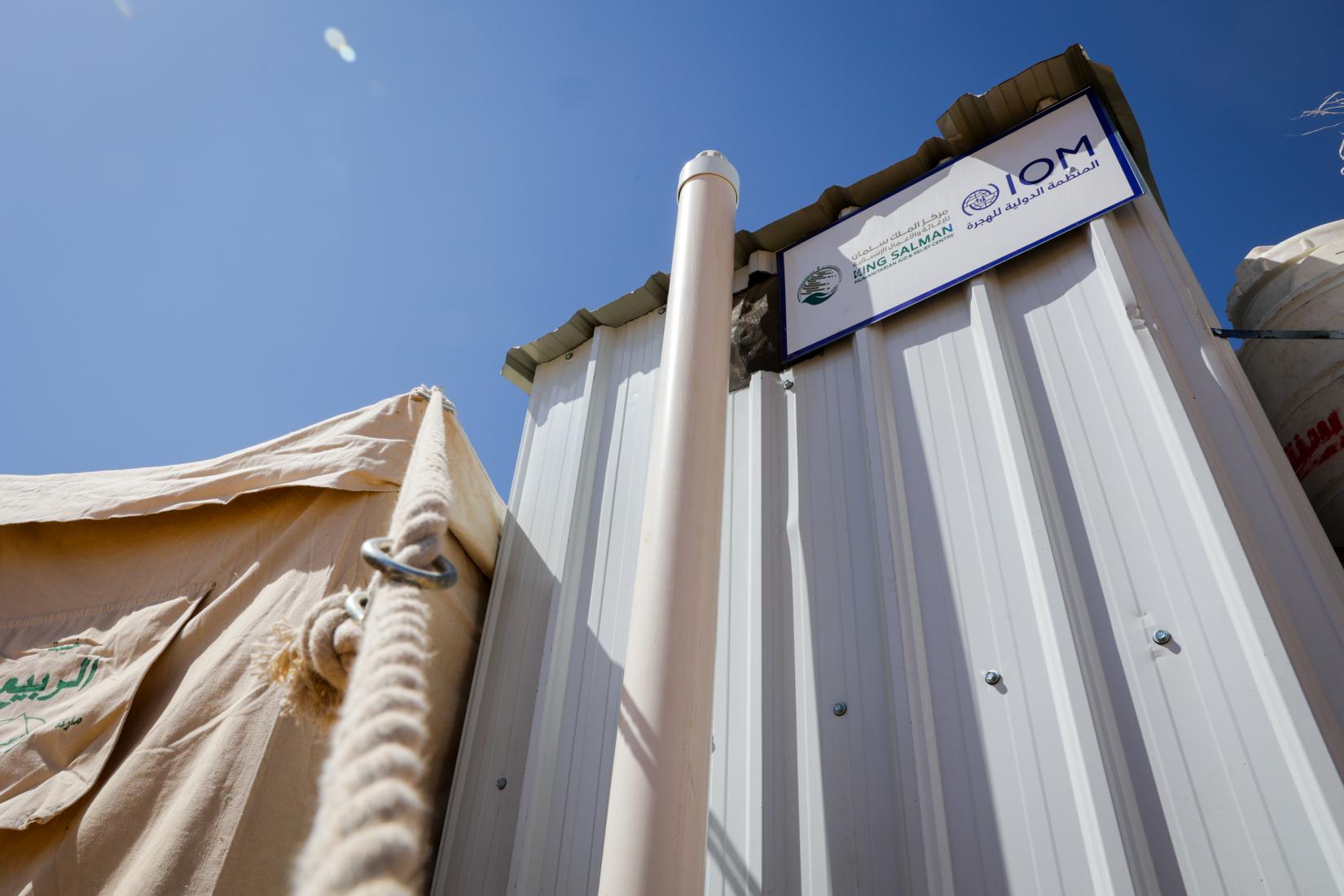
A Fresh Start
Now, Yasser no longer has to stop his children from playing outside, afraid they will step into something dangerous. The constant infections that drained their energy and emptied their pockets are no longer a daily battle. The latrines are safe, covered, and finally offer the privacy that families have gone without for so long. It is not home, but for the first time in years, it feels like life is moving forward.
“For a long time, I held onto the hope of returning home, where we had a proper latrine,” Amena says. “I used to worry about when and where we could go, about my grandsons being afraid, about the smell creeping into our home. Now, I don’t have to. Things are better, and we can finally live with dignity.”
